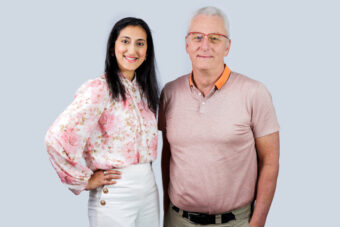
Does it seem that younger people are being diagnosed with cancer more frequently? Global research indicates that there has indeed been a surge in early-onset colon and breast cancers over the last three decades.
Early-onset cancers are defined as cancers that are diagnosed in individuals younger than 50 years. According to a presentation by Irit Ben-Aharon, Md, PhD, at the European Society for Medical Oncology (ESMO) Annual Meeting 2024, the incidence of all early-onset cancers has increased by 79.1%.
The sudden increase in the prevalence of cancers among the younger population is not well understood. Although researchers have limited rationales as to why the numbers have increased, diet and lifestyle appear to be two of the most reasonable factors to explore.
Epidemiologic data shows that children born from the mid-20th century onward are being diagnosed with early-onset cancers. “There have been changes in lifestyle and environmental factors for generations, but during this period, there were significant food, exercise and environmental changes taking place, particularly in high-stress work environments,” says specialist surgeon, Dr Fatima Hoosain. “It is impossible to pinpoint any one reason as there is a lack of available data that tracks health from paediatric to adult stage. The international oncological community needs to be looking into the past with a focus on explaining the present-day effects and ultimately the source of these alarming stats.”
According to an article published in Medscape in April 2024: ‘Breast cancer cases in young Canadian women, especially women in their 20s, have risen by as much as 45.5% in recent years. Study findings, which were published on April 25 in the Canadian Association of Radiologists Journal also highlighted an increase in cases among women in their 30s and 40s by as much as 12.5% and 9.1%, respectively.’
In an American Cancer Society research piece published in December 2024, ‘colon cancer is one of 17 different types of cancer rising for Gen X and millennials’.
”Although the prevalence of breast cancer is still lower than that in older women, it has become far more common to find breast cancer in younger women,” says Hoosain. Many well-known young celebrities such as Jenna Fischer, Olivia Munn and Elle Macpherson, have all announced that they are testament to this very tale.
“There is not a call for earlier screenings as yet”, says specialist surgeon Dr Justus Apffelstaedt, “but we are advising people to start with mammographic screening by the age of 40 and for colon screening from the age of 45. It has long been known that good nutritional and exercise habits can reduce the risk of cancer, and it is advisable to continue to do both.”

“Habits such as smoking and binge drinking should be avoided and the rising prevalence of obesity needs to be checked,” says Hoosain. “We also need to learn better coping mechanisms. The need to perform in our work environment can be a positive stressor, but this needs to be balanced with enough time to rest and recover. Time management is critical, and personal time needs to be prioritized more effectively.”
The good news is that this increased early-onset cancer diagnosis trend is being paid attention to. Research is taking place worldwide and breast cancer is already one of the most researched cancers. As with all cancers, early detection is the most important measure to take.
“Irrespective of one’s age, it is so important to know and understand our bodies. That and the importance of regular check-ups,” says Hoosain. “Breast cancer accounts for between 14-30% of all cancer in women. Survival rates for women 35 and under are worse when compared to those in older women, and multivariate analysis has shown younger age to be an independent predictor of adverse outcome. This is due to multiple factors such as a lack of screening and therefore later cancer diagnoses, that cancers diagnosed in this age group tend to be more aggressive or faster growing and that there is often a genetic predisposition to the development of cancer.”
Understanding risk and managing it through the avoidance of harmful habits and the adoption of healthy ones not only reduces the risk of breast cancer but also mitigates the risks associated with other cancers and diseases. Those with a family history can now have genetic testing from the age of 16, which allows doctors to adjust and tailor their screening appropriately.
Both Hoosain and Apffelstaedt agree: “Awareness is key, and you know your body best, so do genetic testing if necessary and if you feel there is something wrong, get it checked out early”.
Also see: Is it necessary to wash meat before cooking or freezing?




